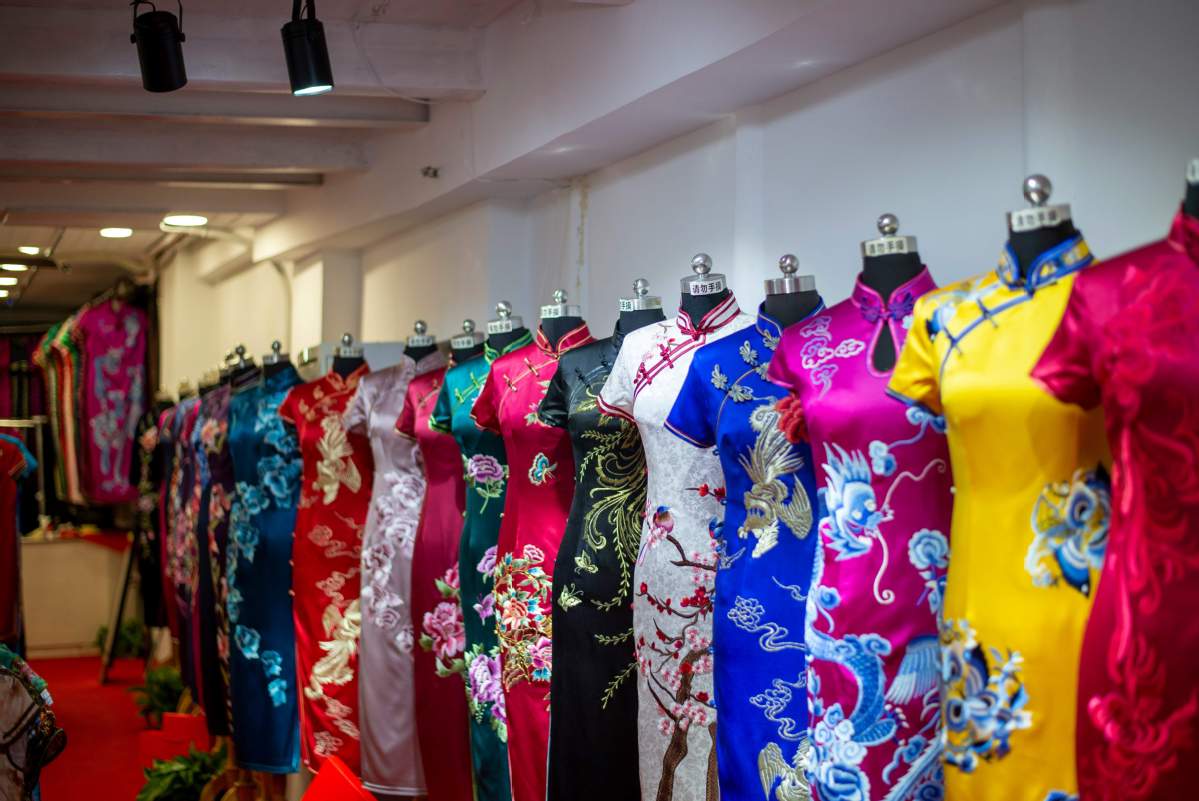源于漢語(yǔ)的9個(gè)外來(lái)詞 9 every day English words originally borrowed from Chinese
The Beijinger 2024-01-30 17:31


English has long padded out its vocabulary by adopting so-called "loan words (外來(lái)詞, wài lái cí)" from other languages, or as fiction reviewer James Nicoll put it, our beloved vernacular "follows other languages down dark alleys, knocks them over, and goes through their pockets for loose grammar."
Among the many hundreds of loan words and phrases that make up English today, only a small proportion originate from Chinese. While they come from various different parts of the country, most of these Chinese-originated words have a pronunciation that is heavily influenced by Cantonese or Hokkien (粵語(yǔ)和閩南語(yǔ), yuè yǔ hé mǐn nán yǔ), and due in part to the British colonization of Hong Kong, or the maritime trade between port cities in Guangzhou and Fujian province from the Tang dynasty (618-907) onward. Those, in turn, were brought to the Western countries by immigrants from around the early 1970s.
Below we compile nine of the most commonly used words in English that have roots in Chinese.
Cheongsam 旗袍 (qí páo)
Cheongsam, the Cantonese word for qipao, refers to a type of tight-fitting dress with distinctive features of Manchu origin that was popularized by Chinese socialites and upper-class women in Shanghai.
Feng Shui 風(fēng)水 (fēng shuǐ)
Feng shui, also known as Chinese geomancy, is one of the Five Arts of Chinese Metaphysics which claims to manipulate energy forces to harmonize individuals with their surrounding environment. The term literally translates as "wind-water" in English, and was first introduced to Westerners in 1757.
Ginseng 人參 (rén shēn)
Ginseng is a herbal root widely used in Chinese medicine (中藥, zhōng yào) that is known to have many health benefits, including boosting circulation and lowering cholesterol (降低膽固醇, jiàng dī dǎn gù chún). The word comes from the Hokkien dialect and literally means "person plant root," referring to the way that the herb resembles the legs of a person.
Ketchup 番茄醬 (fān qié jiàng)
In the 17th century, people in Fujian mixed a concoction of pickled fish and spices and called it k?e-chiap in their dialect (方言, fāng yán), to refer to the brine of pickled fish. By the early 18th century, the sauce had arrived in some areas of present-day Malaysia and Singapore, where English colonists got their first taste. Although what we know as modern ketchup bears little resemblance to a spiced pickled fish sauce (魚(yú)露, yú lù), the original name has been retained in the English world as "ketchup."
Kowtow 磕頭 (kē tóu)
Literally means "knock head," the act of ke tou is a way of bowing and touching the forehead to the ground which was common in ancient China as a way to show respect for the emperors or higher-ranked officials. Nowadays, the custom is rarely observed, and only to the elders during specific festive occasions or to deceased ancestors. However, the word 'kowtow' has endured in the English language and is used as a synonym for "to grovel, prostrate oneself, or behave in a subservient manner (卑躬屈膝, bēi gōng qū xī)."
Long time no see 好久不見(jiàn) (hǎo jiǔ bù jiàn)
Literally translated from 好久不見(jiàn), "long time no see" is as widely used in English as it is in Chinese. The earliest appearance of the phrase "long time no see" in print was recorded in Oxford English Dictionary in 1901.
Silk 絲綢 (sī chóu)
The earliest example of silk being used to make clothing can be traced back to 8,500 years ago in ancient China. Known as sī or sī chóu in standard Mandarin (標(biāo)準(zhǔn)普通話, biāo zhǔn pǔ tōng huà), the word was first introduced to Western culture by smugglers who took silkworms out of China and introduced them to the rest of the world.
Typhoon 臺(tái)風(fēng) (tái fēng)
The Oxford English Dictionary cites Cantonese tai fung as one of the several early forms of the word typhoon in English, with spelling also influenced by the older Urdu-derived forms. The first character is actually a simplification of the traditional Chinese character 颱, which means "strong wind."
Zen 禪 (chán)
Zen is a distinct school of Chinese Buddhism (中國(guó)佛教, zhōng guó fó jiào) that originated in China during the Tang dynasty. It later evolved into various schools of thought and spread to other Asian countries including Vietnam and Japan. The term "zen" is derived from the Japanese pronunciation of the Chinese word 禪 chán.
來(lái)源:The Beijinger
編輯:萬(wàn)月英

















 英語(yǔ)點(diǎn)津微信
英語(yǔ)點(diǎn)津微信 雙語(yǔ)小程序
雙語(yǔ)小程序